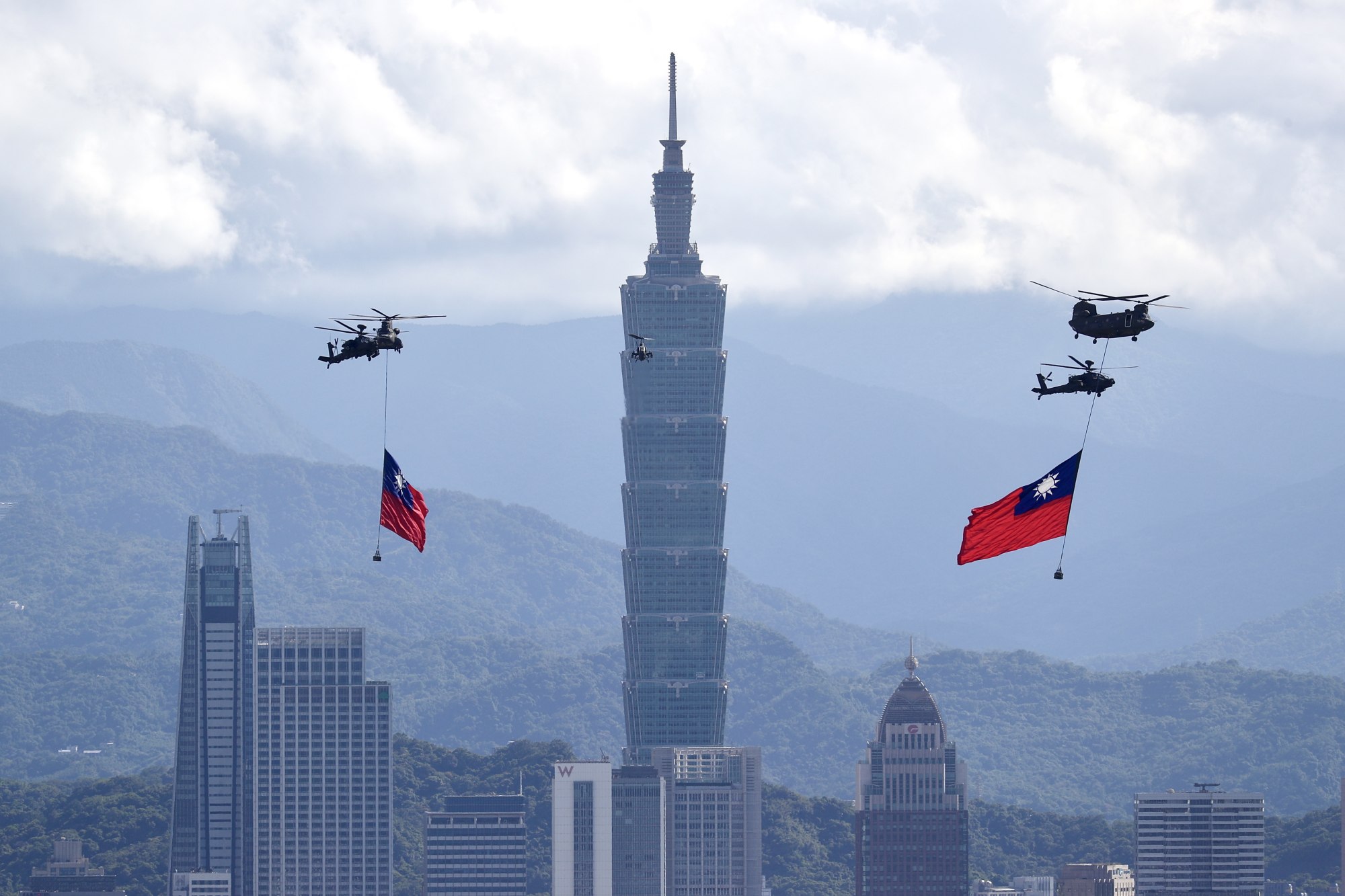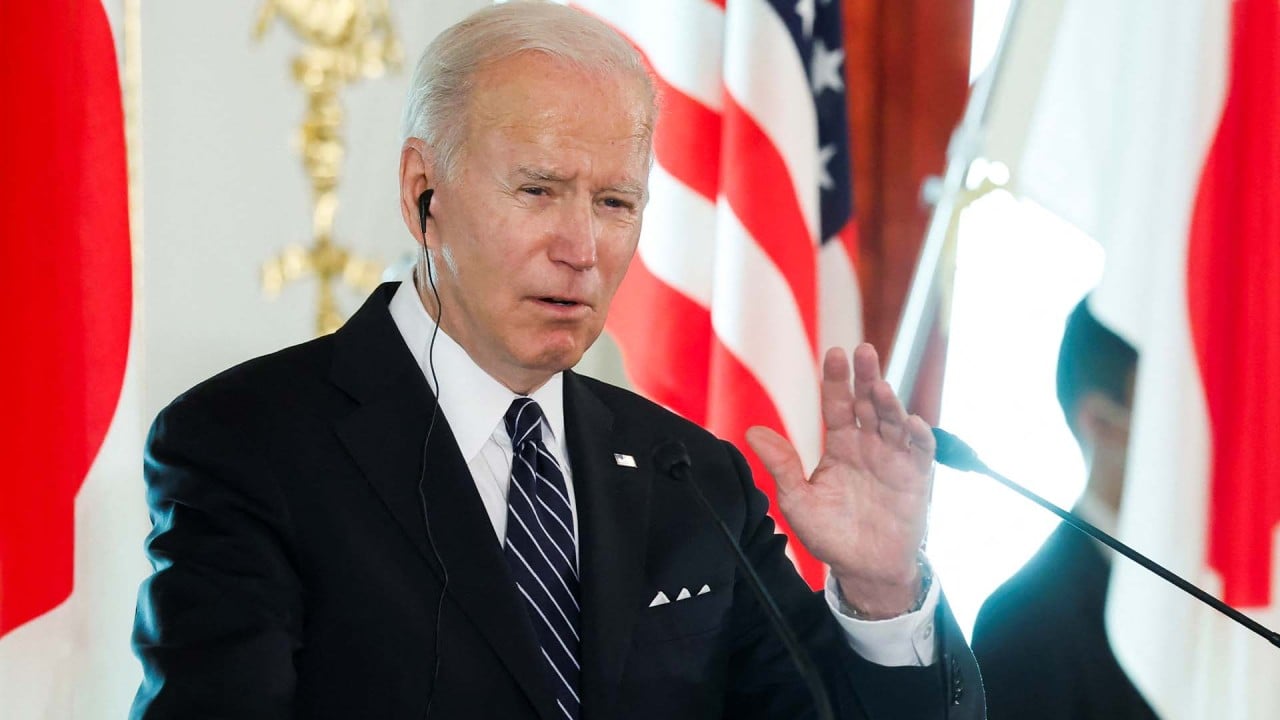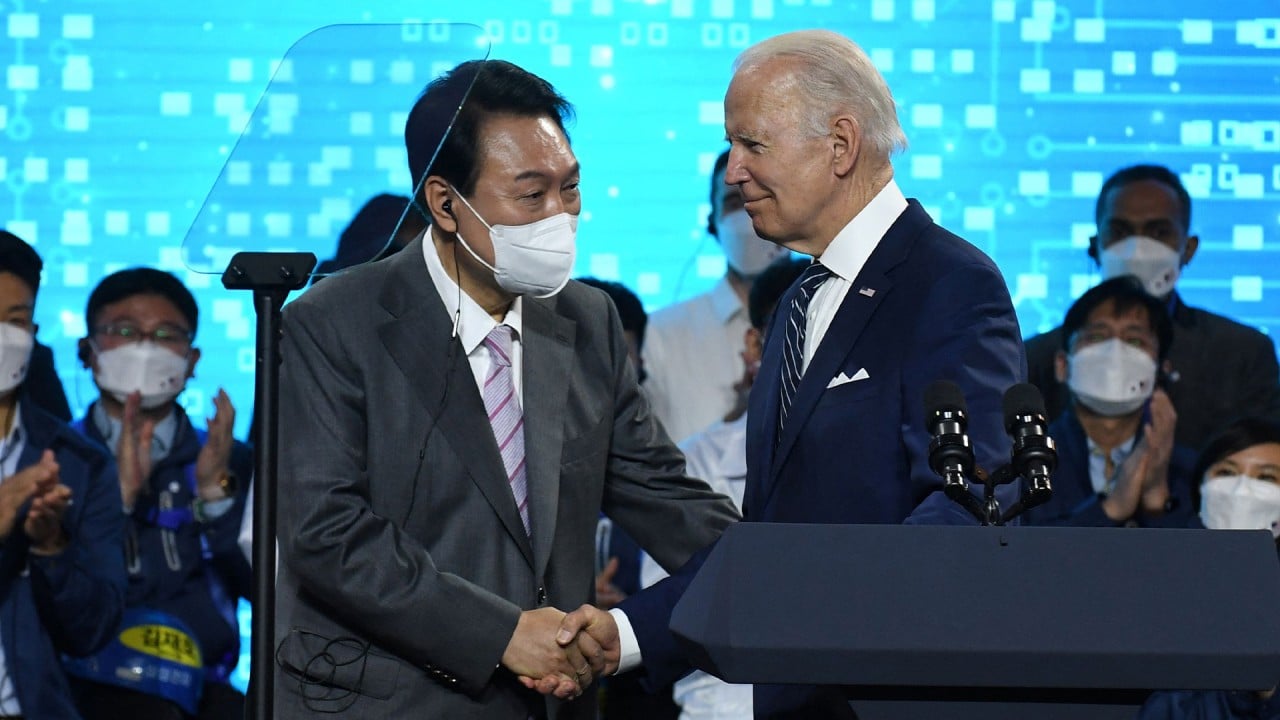
Joe Biden’s comments about defending Taiwan ‘send signal to Beijing without changing US policy’
- Washington insists US policy has not changed after the president said the US had made a commitment to defend Taiwan if attacked by the mainland
- Observers say Biden has sent a ‘politically useful’ signal to Beijing without formally ditching its policy of ‘strategic ambiguity’
A White House official later walked back the remark and said it did not reflect a policy shift. But it is the latest in the string of mixed signals over Taiwan from Biden since he took office a little more than a year ago, including apparently contradictory statements over whether the island is independent.
The 1979 Taiwan Relations Act, which governs US relations with the island, does not require the US to step in militarily to defend Taiwan if mainland China attacks, but makes it American policy to ensure Taiwan has the resources to defend itself and to prevent any unilateral change of status in Taiwan by Beijing.
“Biden is trying to send a very clear message to China, despite all the advice from his foreign policy advisers, that – at least during his administration – the United States is committed to the defence of Taiwan,” said Tok Sow Keat, a lecturer at the University of Melbourne’s Asia Institute.
12 Asia-Pacific economies ‘prepare for the future’ by signing US-led pact
“That is something the Chinese need to take to heart – that this is the position of the current administration.”
In a press conference with Japanese Prime Minister Fumio Kishida in Tokyo, Biden said: “The idea that [Taiwan] can be taken by force, just taken by force, is just not appropriate. It will dislocate the entire region and be another action similar to what happened in Ukraine.”
As well as maintaining “strategic ambiguity” over Taiwan’s sovereign status, the US has also been unclear about whether it would come to Taiwan’s defence should the People’s Liberation Army launch an attack.
The Taiwan issue is one of Beijing’s most sensitive topics. It regards the island as a breakaway province and has not renounced the use of force to bring it under its control.
On Monday, the Chinese foreign ministry reacted angrily, saying that China “staunchly opposed” Biden’s remarks and was “strongly dissatisfied” with them.
“Taiwan is an inalienable part of China’s territory. The Taiwan issue is purely a Chinese internal affair and China would not allow any interference by foreign forces,” foreign ministry spokesman Wang Wenbin said.
Wang also urged the US to abide by the one-China principle and the three communiqués signed by Washington and Beijing that paved the way to normalising bilateral ties, and warned it to “tread carefully” on the issue.
In Japan, Biden to launch economic plan for region sceptical on benefits
Tok said Washington’s hesitance to get involved directly in Ukraine was likely to indicate to Beijing how the US might act if and when Taiwan was attacked.
But Biden’s statement had enough ambiguity to prevent an armed conflict in the Taiwan Strait while still sending an explicit signal to Beijing that Washington would not tolerate an aggressive change to the status quo.
“For the United States, yes, strategic ambiguity is there as a policy, but it’s not something that this administration will abide with,” he said.
Wen-Ti Sung, a lecturer of international relations and China studies at the Australian National University, said the remark was a useful “slip of the tongue” and reflected widely shared assumptions within the US government.

“Biden has done this multiple times before,” Sung added and said his comments send “a very politically useful signal”.
In October, Biden said the US was committed to coming to Taiwan’s defence without specifying in which form, but the White House later clarified his comment did not amount to a change in Washington’s Taiwan policy.
Biden later said the US was not “encouraging independence” and it was up to Taiwan to decide.
Chen Qi, the dean of the Centre for US-China Relations at Tsinghua University, said Biden’s remark was not surprising because nobody thought that the US would not respond to an attack – whether directly or through a proxy.
“But the remark changed the narrative so as to worsen US-China ties,” he said. “China would note this change but also account for the fact that it was a response to a reporter’s question and not in an official document. But it did come from the mouth of the president. It was a serious statement.”
Biden touts wider regional cooperation in South Korea visit, avoids mentioning China
Zhou Chenming, a researcher from the Yuan Wang military science and technology think tank in Beijing, said Chinese forces were prepared for a conflict and there would not be changes because of Biden’s statement.
“Casually saying that there would be military support can only be seen as a political statement,” he said.
Wang Kung-yi, the director of Taipei-based think tank Taiwan International Strategic Study Society, said Biden’s remark reflected his will to defend Taiwan with force and explained why he had made similar comments multiple times.
“But he apparently forgot he was speaking in his capacity as the US president,” he said.
Additional reporting by Lawrence Chung and Reuters



